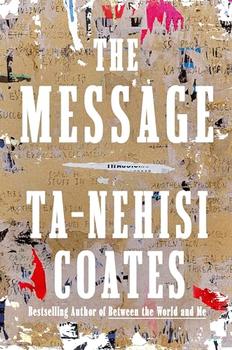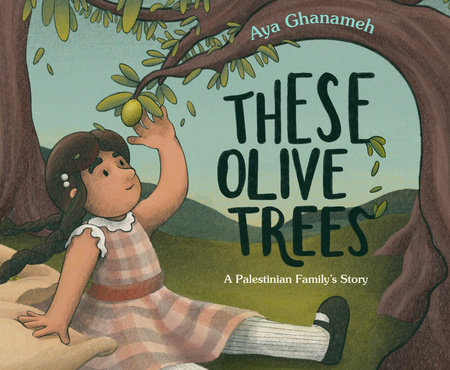Summary | Excerpt | Reviews | Beyond the Book | Read-Alikes | Genres & Themes | Author Bio

This article relates to The Message
 Ta-Nehisi Coates' The Message implores readers to consider listening to marginalized people speak on their own experiences. This seems uncontroversial until Coates sheds light on his findings that a startling amount of what the average American knows about Palestine does not come from Palestinians themselves. In the spirit of Coates' body of work, I believe it is imperative to examine marginalized voices without involving the voices of their oppressors. Below are meditations on some of the hopes, dreams, memories, and aspirations that make up Palestinian life.
Ta-Nehisi Coates' The Message implores readers to consider listening to marginalized people speak on their own experiences. This seems uncontroversial until Coates sheds light on his findings that a startling amount of what the average American knows about Palestine does not come from Palestinians themselves. In the spirit of Coates' body of work, I believe it is imperative to examine marginalized voices without involving the voices of their oppressors. Below are meditations on some of the hopes, dreams, memories, and aspirations that make up Palestinian life.
Palestinian activist and writer Laila El-Haddad penned The Gaza Kitchen: A Palestinian Culinary Journey (now in its third edition), which features recipes and full-color illustrations of native dishes, interspersed with photos and interviews with Palestinians about how their food ties into their rich cultural history and resistance to the Israeli occupation. It is one of the few contemporary English-language texts documenting Gazan cooking. In an interview with E. Alex Jung for Vulture, El-Haddad says, "It seemed frivolous and privileged to be able to write a cookbook at a time when Gaza was being blockaded and pounded." However, she views the book as a source of empowerment, explaining, "The ability to celebrate and laugh and cook is an act of resistance."
Aya Ghanameh is a Palestinian illustrator, author, and designer. Her debut children's book, These Olive Trees (2023), "is inspired by the experiences of her family who cultivated her love of the earth throughout her upbringing in exile," according to her website. Her work sprawls into incredibly colorful illustrations, and delves often into the most intimate views of her Palestinian family's life and legacy. In an interview for Strange Horizons, Ghanameh says, "I think when people think about Palestine, we often think about it through lenses of nationalism and as a place caught in a never-ending struggle. I want to amplify the stories of the ordinary Palestinian."
Moroccan scholar Nabil Echchaibi, in a beautiful piece for LitHub, draws attention to others working in the space of Palestinian joy. One of these is Larissa Sansour, whose short film Nation-Escape imagines a skyscraper where one can take the elevator to Palestinian liberation. Echchaibi also references Palestinian poet Mahmoud Darwish, who wrote, "We love life if we find a way to it."
Finally, Lena Khalaf Tuffaha's poetry collection Something About Living, a National Book Award finalist, reckons with both the terrible grief inspired by the violence against Palestinians and the potential for revolutionary joy: "Let us plan / to decolonize our spaces ... Let us plan, brothers and sisters, / a museum heist or a freedom march, a lapis lazuli // set in metal that will not tarnish, / scored / thrice in the way our grandmothers tattooed their chins. / You cannot swallow a life."
Cover of These Olive Trees by Aya Ghanameh, courtesy of Viking Books for Young Readers
Filed under Places, Cultures & Identities
![]() This article relates to The Message.
It first ran in the November 6, 2024
issue of BookBrowse Recommends.
This article relates to The Message.
It first ran in the November 6, 2024
issue of BookBrowse Recommends.
If there is anything more dangerous to the life of the mind than having no independent commitment to ideas...
Click Here to find out who said this, as well as discovering other famous literary quotes!
Your guide toexceptional books
BookBrowse seeks out and recommends the best in contemporary fiction and nonfiction—books that not only engage and entertain but also deepen our understanding of ourselves and the world around us.